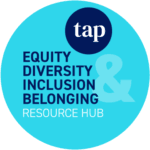
Supporting Indigenous Employees to Thrive
adopt the United Nations Declaration on the Rights of Indigenous Peoples as a reconciliation framework and to apply its principles, norms, and standards to corporate policy and core operational activities involving Indigenous peoples and their lands and resources.
This would include, but not be limited to, the following:
i. Commit to meaningful consultation, building respectful relationships, and obtaining the free, prior, and informed consent of Indigenous peoples before proceeding with economic development projects.
ii. Ensure that Aboriginal peoples have equitable access to jobs, training, and education opportunities in the corporate sector, and that Aboriginal communities gain long-term sustainable benefits from economic development projects.
iii. Provide education for management and staff on the history of Aboriginal peoples, including the history and legacy of residential schools, the United Nations Declaration on the Rights of Indigenous Peoples, Treaties and aboriginal rights, Indigenous law, and Aboriginal–Crown relations. This will require skills based training in intercultural competency, conflict resolution, human rights, and anti-racism.
Engagement in a welcoming workplace where Indigenous peoples feel they belong and can succeed begins with a deeper understanding of the diversity among Indigenous peoples. For non-Indigenous employers, this requires strong ongoing partnerships with Indigenous organizations and allies who can support the organization in building and running a workplace where Indigenous employees can thrive.
There are 204 diverse First Nation communities in British Columbia. It is important to remain curious and open to the different perspectives and strengths of Indigenous employees. Given the diversity within this group, you should ask employees about their workplace experiences and invite their input as to how their experience can be improved.
Creating a culture of partnership, collaboration, and listening is a component of laying the foundations for successful employment outcomes.
